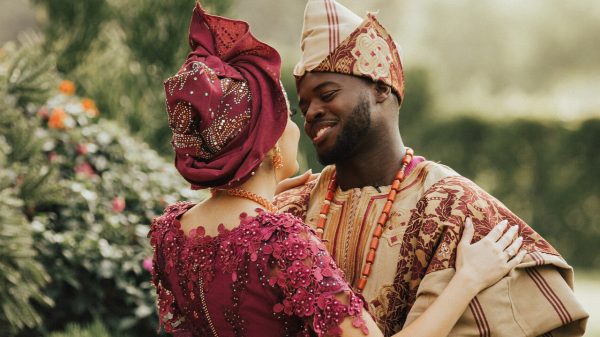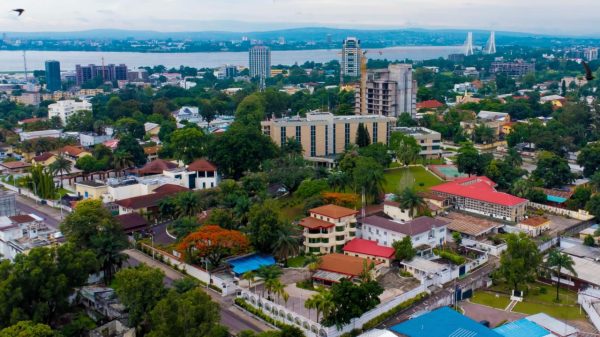Navigating Nigeria‘s bustling cities and vibrant cultures can be an exhilarating experience, but standing out as a lost tourist can attract unwanted attention.
To blend seamlessly and ensure a smoother, safer journey, adopting local customs and practices is key. From mastering basic Pidgin phrases to respecting cultural nuances, these tips offer practical strategies for travelers. By understanding the subtle cues and adapting your behavior, you can minimize the “tourist” vibe, enhance your interactions, and immerse yourself more authentically in the rich tapestry of Nigerian life.
1. Dress Like a Local
Adapting to the local dress code is essential in Nigeria, where attire varies by region and occasion. In urban areas like Lagos and Abuja, business attire is common, with men wearing suits and women opting for dresses or skirts with blouses. For public functions, Nigerians often dress corporately; thus, wearing a T-shirt to a business meeting may not be appropriate. Incorporating traditional elements like a pair of pam slippers or sandals can also help you blend in, as they are popular among both men and women in Nigeria.

2. Learn Basic Local Phrases
While English is the official language of Nigeria, the country is linguistically diverse, with over 500 languages spoken. Learning basic greetings and phrases in the predominant local language of the area you’re visiting—such as Yoruba in the southwest, Igbo in the southeast, or Hausa in the north—can demonstrate respect and facilitate smoother interactions. For example, greeting with “Bawo ni?” (How are you?) in Yoruba or “Kedu?” in Igbo can endear you to locals and show your interest in their culture. Nigerian Pidgin English is also widely spoken, so have a go at it.
3. Be Mindful of Your Belongings
Petty theft can occur in crowded areas, so it’s advisable to use a discreet bag and avoid displaying expensive items like jewelry or electronics. Opt for anti-theft backpacks or crossbody bags that can be worn in front, and consider using money belts or hidden pouches for valuables. Being vigilant and keeping your belongings secure can deter potential thieves and help you blend in more seamlessly.
4. Avoid Large Maps in Public
Unfolding large maps in public can make you stand out as a tourist. Instead, use smartphone navigation apps to find your way. Before heading out, download offline maps to avoid relying on internet connectivity. If you need to consult a map, step into a café or a less conspicuous area to do so discreetly. This approach not only helps you blend in but also enhances your safety by not drawing attention to your unfamiliarity with the area.
5. Understand Local Customs and Etiquette
Nigeria is a culturally rich and diverse country with various customs and traditions. For instance, in many Nigerian cultures, using the right hand for greetings, eating, and giving or receiving items is considered respectful, while the left hand is often viewed as unclean. Additionally, public displays of affection are generally frowned upon, especially in more conservative northern regions. Familiarizing yourself with these customs can prevent unintentional offenses and show your respect for local traditions.
6. Use Public Transportation
Familiarizing yourself with local transport options like okadas, Keke napeps, buses or shared taxis can help you blend in with daily commuters. In Lagos, for example, the iconic yellow “danfo” minibuses are a common mode of transport. However, they can be crowded and may not adhere to strict safety standards. Ride-hailing services like Uber or Bolt are also available in major cities and offer a safer and more comfortable alternative. Observing how locals use these services and following suit can make your movements more seamless.
7. Be Discreet with Photography
While Nigeria offers numerous picturesque scenes, it’s important to be mindful when taking photographs. Always ask for permission before photographing individuals, as some may find it intrusive or disrespectful. Be particularly cautious around sensitive areas such as government buildings, military installations, and religious sites, where photography may be prohibited. Discreet photography not only shows respect but also helps you avoid drawing unnecessary attention.
8. Stay Alert and Confident
Walking with purpose and maintaining situational awareness can deter potential scammers or pickpockets. Even if you’re uncertain about your direction, project confidence in your movements. If you realize you’re lost, step into a shop or café to consult your map or ask for directions discreetly. Confidence and alertness signal to others that you are aware and in control, making you less of a target.

9. Limit Public Display of Guidebooks
Openly displaying guidebooks or tourist brochures can make you an obvious target for scams or unsolicited offers. Instead, research your destinations beforehand and take notes on your smartphone or a small notebook. This preparation allows you to navigate new areas without overtly signaling your tourist status. Additionally, relying on digital resources can provide real-time updates and recommendations.
10. Avoid Overly Touristy Accessories
Items like fanny packs, large backpacks, or clothing adorned with national flags can immediately mark you as a tourist. Opt for neutral, understated accessories that are both functional and inconspicuous. For example, a simple crossbody bag or a sleek daypack can serve your needs without drawing attention. Dressing and accessorizing in a manner similar to locals can help you blend in more effectively.
11. Respect Local Dining Etiquette
Nigerian cuisine is diverse and flavorful, with communal eating practices in many cultures. For instance, dishes like pounded yam and egusi soup are traditionally eaten with the hands. In such cases, always use your right hand, as the left is considered unclean. If you’re unsure about the proper way to eat a particular dish, observe others or ask politely. Respecting these dining customs enhances your cultural experience and shows appreciation for local traditions.
12. Keep Your Voice Down
Speaking loudly in public can draw unwanted attention and may be perceived as rude. In many Nigerian cultures, maintaining a moderate speaking volume is a sign of respect and humility. Being mindful of your voice level, especially in enclosed spaces like public transportation or restaurants, can help you blend in and avoid disrupting the local ambiance.
Subscribe to our Newsletter
Stay updated with the latest trends in African Pop Culture!























